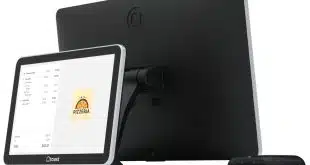Confirming its earlier signals that it does not want to be a direct U.S. merchant acquirer, at least not yet, Visa Inc. plans to sell its portfolio of just over 9,000 U.S. e-commerce merchants to merchant processor Global Payments Inc. within the next two months.
Atlanta-based Global divulged the pending sale Thursday in its earnings announcement for the second quarter of fiscal 2012 ended Nov. 30. No separate purchase price was disclosed, but Global said it was paying $45 million for the CyberSource file and two international portfolios. Global expects to close the CyberSource acquisition by the end of its third quarter.
The pending sale gets Visa out of the somewhat uncomfortable position it found itself in after its $2 billion acquisition of Mountain View, Calif.-based CyberSource Corp. in 2010. CyberSource’s main businesses were the Authorize.Net gateway for online merchants, various fraud-control and management services for them, and merchant-acquiring portfolios in the U.S. and abroad. That last business essentially made Visa a direct competitor of its U.S. acquirer customers. One researcher told Digital Transactions News at the time that the deal would “freak out the merchant-acquiring community.”
Visa, however, downplayed fears that it would compete with U.S. acquirers. Chief executive Joseph Saunders said plans called for the acquiring operation to switch to a referral model in which Visa partner acquirers would take ownership of the accounts.
How far that plan progressed is unclear. Visa had no comment on the pending sale other than to issue a statement saying, “This agreement enables CyberSource to focus on its core business of providing comprehensive payment-management services to merchants.”
Global Payments, meanwhile, is gaining an established portfolio that raises its currently low profile in e-commerce merchant processing, a niche dominated by Chase Paymentech, First Data Corp., and a handful of other acquirers. A company spokesperson did not respond to a Digital Transactions News request for comment, but Global’s top executives fielded questions about the sale late Thursday during their quarterly conference call with stock analysts.
“This gets us to a really good toehold in the market that we’ve been smaller than we would like to be and allows us to build very substantially off that market,” Global Payments president Jeffrey S. Sloan said, according to the Seeking Alpha transcript service.
CyberSource essentially will function as one of Global Payments’ independent sales organizations that generate transactions for the processor. In fact, Global already handles an undisclosed amount of processing volume from CyberSource merchants, according to Sloan. He didn’t give details, but said in response to a later question that, “We’ve had a relationship with CyberSource historically.”
Chairman and chief executive Paul R. Garcia said CyberSource’s technology is an important factor in attracting e-commerce merchants. “[The acquisition] puts us in a position to continue to work with CyberSource to win new business. Now their technology is a key to a lot of those wins. So in that regard, we have the benefit of that,” he said. Garcia indicated that Global Payments has various platform options for processing CyberSource’s volume, but he indicated new volume could be put on Global’s new G2 platform.
Global Payments also announced Thursday that it bought a portfolio of 6,000-plus merchants from Russia’s Alfa-Bank and HSBC Bank’s portfolio of nearly 4,000 merchants in Malta.
Acquiring industry researcher Adil Moussa, senior analyst at Boston-based Aite Group LLC, isn’t surprised by the CyberSource sale. “I honestly thought that Visa was never going to keep those merchants. It just makes sense for them [to sell]; they’re not in the business of acquiring.”
Moussa qualifies that opinion, however, by adding that Visa might have a different view about direct acquiring if the portfolios of some of its biggest acquirers somehow came up for sale. Both Visa and rival MasterCard Inc., as publicly held companies, are increasingly interested in growing revenues by offering more services that traditionally have been offered by merchant processors or banks in their roles as card issuers, he notes. As examples, Moussa cites the long menus of services available to prepaid card and debit issuers through Visa’s Debit Processing Service, and the networks’ expanding data-analysis services. “They have already started doing it on the issuing side,” he says.





